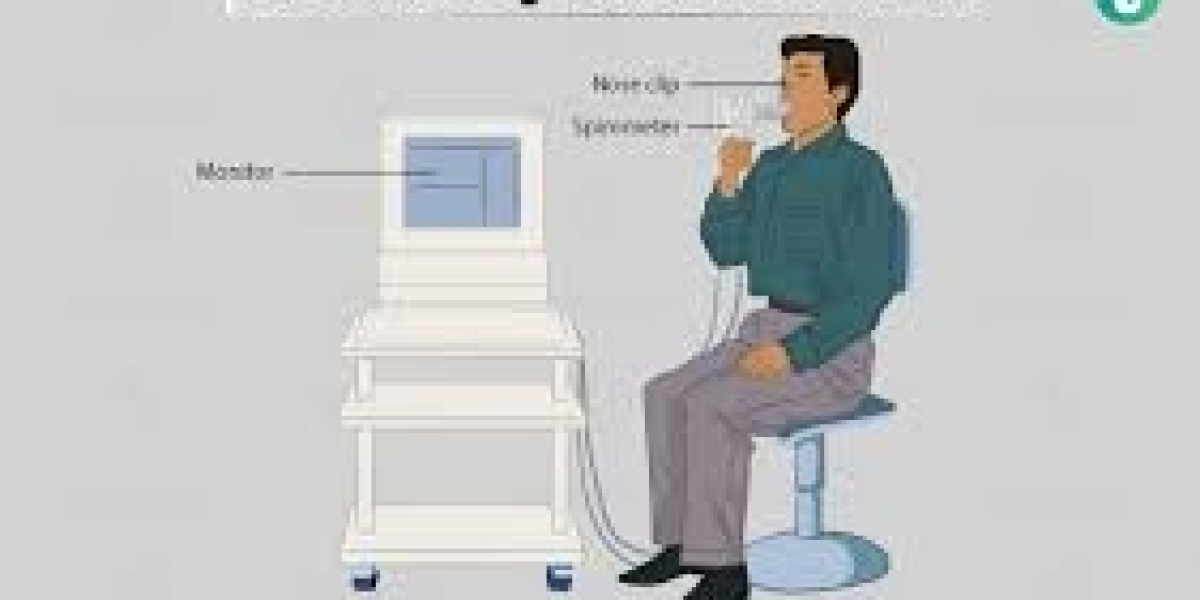PFT Test Near Me: Everything You Need to Know About Pulmonary Function Tests
Finding a reliable pft test near me can be confusing, especially when you’re trying to understand what the test involves and why it’s so important for your health. Pulmonary Function Tests (PFTs) are essential in diagnosing and managing respiratory conditions like asthma, COPD, and other lung-related disorders. If you’ve been experiencing shortness of breath, wheezing, or persistent coughing, your doctor may recommend this diagnostic test to measure how well your lungs are working.
This detailed guide explores everything about pft test near me, from its purpose and procedure to benefits and preparation tips, ensuring you know what to expect before booking your appointment.
What is a Pulmonary Function Test (PFT)?
A Pulmonary Function Test, often called a PFT, is a non-invasive procedure used to assess lung function. It measures how much air you can inhale, exhale, and how efficiently your lungs deliver oxygen to your bloodstream.
Doctors rely on this test to evaluate lung performance, detect abnormalities, and monitor progress during treatment. Understanding the results helps healthcare professionals design a personalized treatment plan to improve respiratory health.
Why You Should Consider a PFT Test
Getting a pft test near me is crucial if you experience respiratory symptoms that interfere with your daily life. The test helps in:
Detecting chronic lung diseases such as asthma, bronchitis, and emphysema.
Monitoring the effectiveness of ongoing respiratory treatments.
Evaluating lung function before surgery.
Identifying workplace-related lung conditions (especially in industrial environments).
Regular testing ensures early detection, which can significantly improve recovery outcomes.
Types of Pulmonary Function Tests
1. Spirometry
Spirometry is the most common type of PFT. It measures the volume of air you can exhale after taking a deep breath and how quickly you can expel it. It helps detect obstructive and restrictive lung diseases.
2. Lung Volume Test
This test determines the total amount of air your lungs can hold. It’s especially useful for diagnosing restrictive lung diseases.
3. Diffusion Capacity Test
It measures how effectively oxygen moves from your lungs into your blood, identifying problems related to the alveoli or capillaries.
4. Peak Flow Measurement
Peak flow meters measure how quickly air can be expelled from the lungs. It’s often used to manage asthma symptoms and monitor treatment effectiveness.
How to Prepare for a PFT Test
Before undergoing a pft test near me, your doctor will likely give you specific instructions:
Avoid smoking or using inhalers for several hours before the test.
Wear loose clothing to make breathing easier.
Refrain from heavy meals before the test to avoid discomfort.
Inform your doctor about any medications you are taking.
Proper preparation ensures accurate test results and a smooth testing experience.
Step-by-Step Procedure of a PFT
Initial Assessment:
A technician will explain the procedure and ensure you’re comfortable.Breathing Exercises:
You’ll be asked to inhale deeply and exhale forcefully into a mouthpiece connected to the testing equipment.Repeat Measurements:
The test may be repeated several times to ensure accuracy.Additional Tests:
Some cases may include tests involving mild physical exertion or breathing in certain gases.Result Evaluation:
Results are analyzed to determine lung efficiency and detect abnormalities.
The procedure is simple, safe, and usually takes 30–60 minutes.
Benefits of Getting a PFT Test
Booking a pft test near me offers several health advantages, including:
Early detection of respiratory conditions.
Better management of chronic lung diseases.
Monitoring progress during treatment.
Improved understanding of lung capacity and function.
Helping doctors make informed medical decisions.
With quick results and non-invasive testing, PFTs are a reliable choice for anyone concerned about lung health.
Who Should Take a Pulmonary Function Test?
This test is highly recommended for:
Individuals with chronic cough or shortness of breath.
Smokers and ex-smokers.
People exposed to pollutants or industrial fumes.
Patients with a history of respiratory infections.
Individuals scheduled for major surgeries.
If you fall into any of these categories, consulting your doctor about a pft test near me is a wise step toward better respiratory health.
Understanding the Results
After completing your test, the results will include key parameters such as:
FEV1 (Forced Expiratory Volume): Measures how much air you can exhale in one second.
FVC (Forced Vital Capacity): The total air exhaled after deep inhalation.
FEV1/FVC Ratio: Used to identify obstructive or restrictive lung issues.
TLC (Total Lung Capacity): The maximum volume your lungs can hold.
Your doctor will interpret these results and recommend further steps if any irregularities are detected.
Possible Risks or Side Effects
PFTs are generally safe, but minor side effects may include:
Dizziness or light-headedness.
Temporary shortness of breath.
Mild coughing after the test.
These symptoms are short-lived and usually resolve quickly.
Final Thoughts
Finding a reliable pft test near me ensures accurate diagnosis and helps monitor your lung health effectively. Whether you’re dealing with chronic breathing issues or undergoing routine checkups, a PFT offers valuable insights into your respiratory system’s performance. With early detection and professional guidance, you can manage lung conditions more efficiently and improve your overall quality of life.
Frequently Asked Questions (FAQs)
1. What is a pulmonary function test used for?
It’s used to measure how well your lungs work, helping diagnose and monitor respiratory diseases like asthma, COPD, and lung fibrosis.
2. How long does a PFT take?
The test typically lasts between 30 to 60 minutes, depending on the number of tests performed.
3. Is the pulmonary function test painful?
No, the test is completely painless. You might feel slightly breathless, but it subsides quickly after the test.
4. Can I eat before a pulmonary function test?
It’s best to avoid heavy meals before the test as a full stomach can restrict deep breathing.
5. Are there any risks involved in taking this test?
There are minimal risks. Some people might experience temporary dizziness or mild coughing.
6. Do I need a doctor’s referral for a pulmonary function test?
In most cases, yes. Your healthcare provider usually recommends the test based on your symptoms.
7. Can children undergo pulmonary function testing?
Yes, PFTs are safe for children who can follow breathing instructions properly.
8. How often should someone with asthma take a PFT?
People with asthma are often advised to take the test annually or whenever symptoms worsen.
9. What factors can affect test results?
Smoking, certain medications, improper breathing technique, and recent illness can affect accuracy.
10. When will I receive my test results?
Results are typically available within 24 to 48 hours, depending on the diagnostic center.









